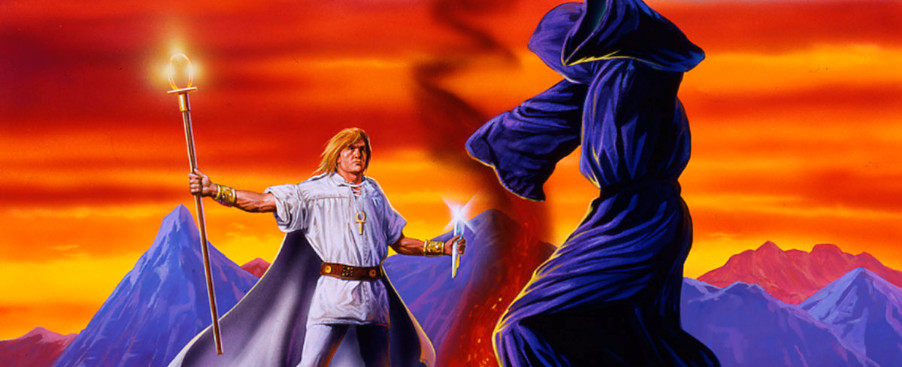The Immoral Morality of Ultima V
-
Category: News ArchiveHits: 1681

Kotaku has published a new editorial on Ultima V that focuses on the game's treatment of morality and religion. Even decades after the game's release, its themes still resonate:
It’s chilling returning to what was once a familiar world and finding a family in stockades. The father is locked up for only giving 40% of his earning, not the full 50%. His son is imprisoned by his side for not reporting him. A suspicious guard making the rounds demands a bribe as tribute to Lord Blackthorne.
What’s fascinating about the whole new religion is that this isn’t a theocracy deriving its authority from a esoteric divine being. Rather, the whole basis on which Blackthorn draws his legitimacy is you, the Avatar, and all the sacrifices you made in your in Ultima IV voyage. The Ultima games have always been a web in which the threads impact future iterations in unexpected ways. In the series’ growing complexity, I appreciated directly seeing the evolution of RPGs from fantasy tropes (save the princess, vanquish evil wizard) to narratives that incorporated the ambiguities and moral conflicts in our own world.
...
Throughout the years, I’ve met people who’ve condemned my appreciation for games and books because they considered them “secular” or “worldly.” The feeling of being judged always stings. Ultima V really struck a chord with its warnings against moral absolutism and how evil often is just good pushed to an extreme. It sucks to be considered a “bad person” just because you like games. What’s scary is that there are no Shadowlords pulling the strings in reality. You can’t go on a quest, find the original shards from Mondain’s Gem of Immortality, and vanquish the Shadowlords in the flames of love, truth, and courage. Fundamentalism in pixelated form is terrifying, but ultimately defeatable. In real life, it’s far more insidious.

